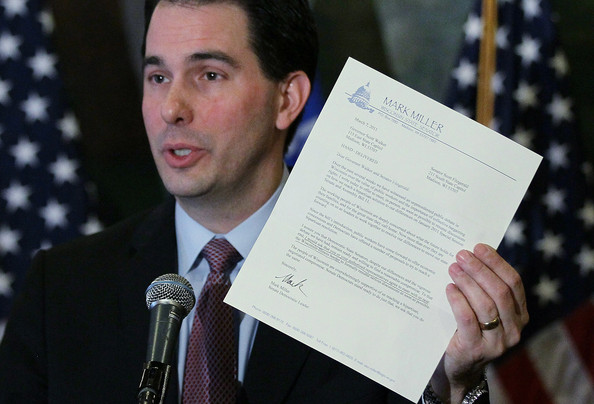Today’s post comes from guest author Charlie Domer from The Domer Law Firm in Milwaukee.
As previously discussed in my blog post from last year, Nebraska’s Gov. Heineman has refused to expand Medicaid under the Affordable Care Act. Although the Legislature attempted in 2013 and 2014 to expand Medicaid, it has not passed with a filibuster-proof majority.
Whether it is for politics or short-sightedness, Heineman misses the positive impact an expansion of Medicaid would mean to all of Nebraska, including its working families. The benefits of expanding Medicaid to Nebraska’s workers are outlined here.
As I wrote almost a year ago, and as Mr. Domer’s blog post below suggests, the governor’s response in this 2013 Omaha World-Herald article of essentially “eat an apple a day” and go ask your church for some help just doesn’t cut it anymore. I don’t know of too many churches handing out health coverage for an emergency appendectomy or for melanoma screenings. The coverage gap of when a person isn’t eligible for subsidies but would have been eligible for expanded Medicaid looms large for many families and workers: many of them will go without health insurance altogether.
Because there are definitely Nebraskans who are “too poor for Obamacare and … too rich for Medicaid,”even though they’re working, they can look forward to potential “dire health consequences,” as Mr. Domer writes, without insurance. I hope the 2015 Nebraska legislative session will be the year for more working Nebraskans to improve their health through the Unicameral passing expanded Medicaid coverage.
Please take a moment to ready this story out of Pennsylvania: Study: Many Will Die if Medicaid is Not Expanded. As part of the Affordable Care Act (“Obamacare”), an expansion of Medicaid was intended. Medicaid essentially is the joint federal-state program to provide health insurance to low income individuals and families. The federal government strongly encouraged this expansion by the states, by offering to pay for that expansion for many years. Unfortunately, the US Supreme Court–in upholding the constitutionality of the bulk of Obamacare–did strike down this Medicaid expansion. The Supreme Court decision left it up to the state’s themselves to decide whether to expand Medicaid for their residents or not.
In many Republican-led states, the decision was made to not expand Medicaid. As seen in this article, Pennsylvania was a state that declined to expand. Wisconsin, with Republican Governor Scott Walker, also decided not to provide this expanded Medicaid coverage to the the state’s low income individiduals. (Check out the story here and here.)
Now comes news that failure to expand Medicaid may actually result in increased deaths among the affected population. The failure to have this expanded coverage, according to the study examining Pennsylvanis, will result in thousands of deaths due to individuals foregoing necessary medication, medical treatment, and preventative screening. Additionally, the expansion failure will result in “catastrophic medical expenses and tens of thousands of cases of untreated depression, diabetes and missed screening tests.” This is a truly scary scenario–and an avoidable one.
In Wisconsin, Gov. Walker is suggesting that these individuals can now obtain health insurance throught the federal-run exchanges. The real issue is whether these low-income individuals can truly afford the premiums and whether they actually qualify for the federal subsidies. These lower-income individuals were the one supposed to be covered by Medicaid expansion–not by the exchanges. Based on the Pennsylvania study, if these individuals are ineligible for Medicaid and cannot secure health insurance elsewhere, dire health consequences (or even death) loom as possibilities.


